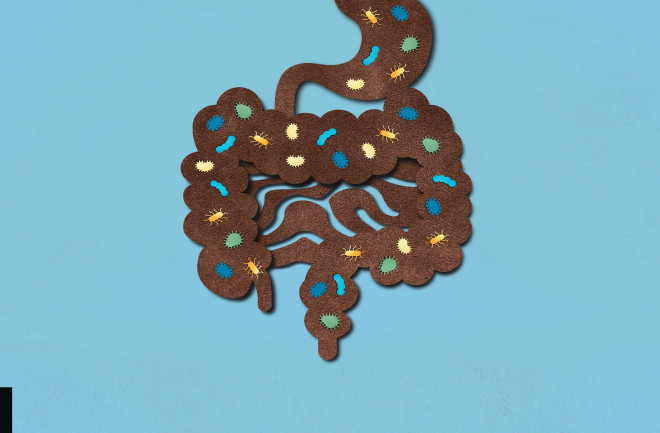It’s no secret that our gut microbiomes — the trillions of bacteria, viruses and fungi that inhabit our gastrointestinal tracts — play a vital role in our lives. In the past decade, researchers have found that these microorganisms help us perform an array of bodily functions and, notably, that they can profoundly affect our mental health.
Still, we’re only beginning to learn how those interactions work, and how they might be harnessed to treat or prevent disease. In a study published in February 2023 in PLOS Biology, for example, researchers at the University of Virginia found that a protein called aryl hydrocarbon receptor, or AHR, which regulates immune cells’ response to chemicals produced by the gut microbiome, may play an important role in multiple sclerosis (MS). The disease causes the immune system to attack myelin, the insulation around nerve fibers, prompting symptoms that can include muscle weakness, pain, and vision loss.

